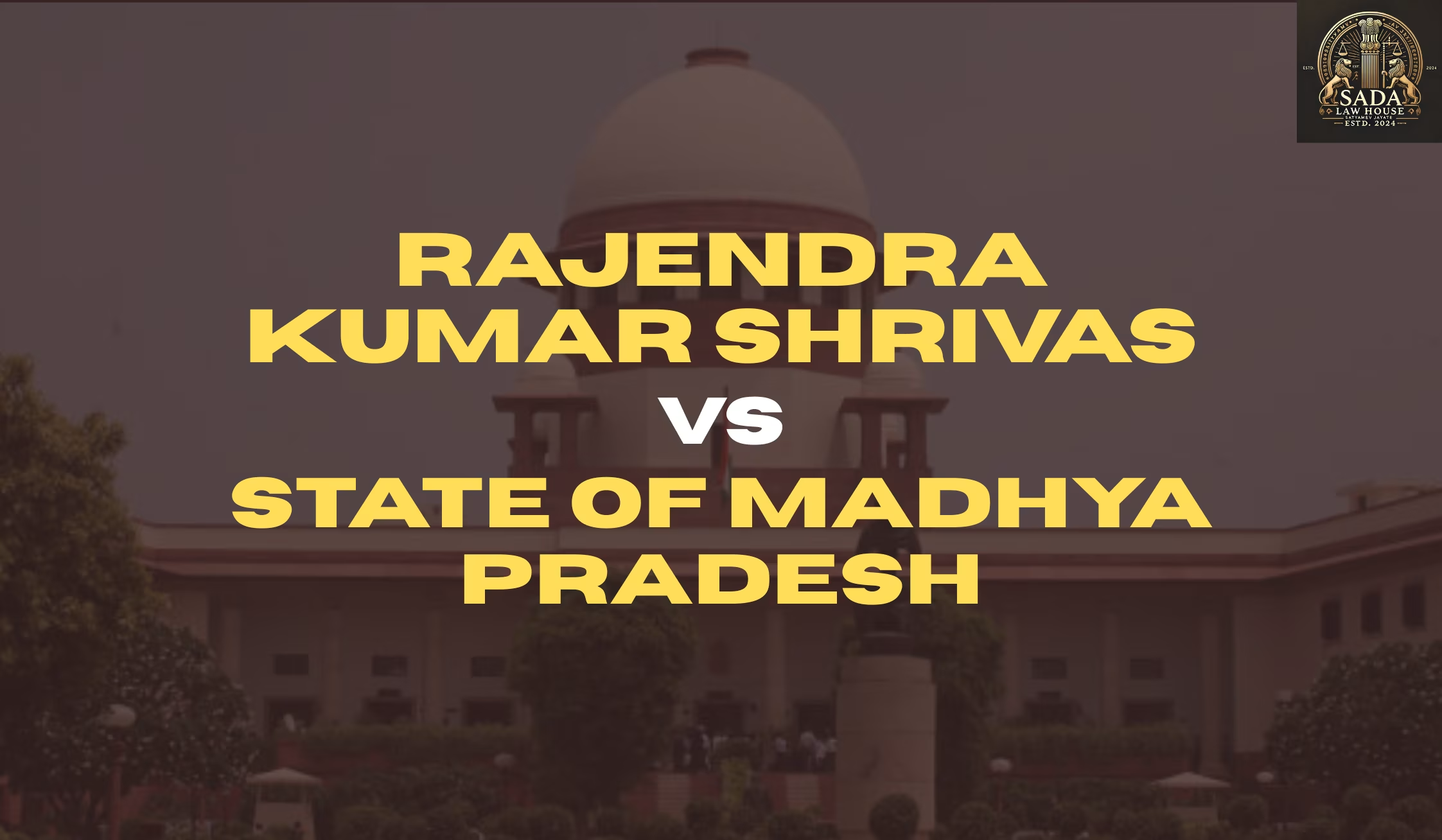Supreme Court Overturns Remission in Bilkis Bano Case: 2002 Gujarat Riots Convicts Ordered Back to Jail
- REHA BHARGAV
- 18 June 2025

Discover the Supreme Court’s landmark judgment in Rajendra Kumar Shrivas v. State of Madhya Pradesh (2023) on district judge appointments. Learn how only 10% of posts can be filled through Limited Departmental Competitive Examination (LDCE), the importance of strict eligibility criteria, and judicial review through writ of quo warranto.
Introduction to Rajendra Kumar Shrivas v. State of Madhya Pradesh & Ors.
The Supreme Court’s recent judgment in Rajendra Kumar Shrivas v. State of Madhya Pradesh addresses critical issues surrounding district judge appointments through the Limited Departmental Competitive Examination (LDCE) quota. The case highlights the importance of adhering to recruitment rules and eligibility criteria when filling public posts.
Background and Facts of the Case
Rajendra Kumar Shrivas, a government employee in Madhya Pradesh’s Commercial Tax Department, challenged appointments made under the 10% LDCE quota for the post of Assistant Commissioner (Commercial Tax). He alleged that several candidates selected did not meet the eligibility criteria laid down in the Madhya Pradesh Commercial Tax Service (Recruitment) Rules, 2006, specifically the requirement of being “substantively appointed” in the feeder post.
Despite raising concerns, the Madhya Pradesh High Court dismissed his writ petition, ruling that a writ of quo warranto was not maintainable in this situation. Dissatisfied, Shrivas escalated the matter to the Supreme Court.
Key Legal Issues
Were the appointments under the 10% LDCE quota made in violation of recruitment rules?
Can a writ of quo warranto be used to challenge appointments violating eligibility criteria?
What is the scope of judicial review in public service appointments?
Arguments from Both Sides
Petitioner’s Arguments
Shrivas argued that the appointments violated statutory recruitment rules, especially since some candidates were only temporary or officiating appointees, disqualifying them from LDCE participation. He maintained that judicial intervention via quo warranto was necessary to uphold fairness and transparency in public employment.
Respondent’s Arguments
The State and respondents contended that candidates were qualified and that the writ petition was inappropriate due to factual disputes about service details. They stressed that the High Court rightly dismissed the writ petition because quo warranto is not suitable for such challenges.
Supreme Court Judgment
On March 13, 2023, the Supreme Court overturned the Madhya Pradesh High Court’s dismissal, ruling in favor of Rajendra Kumar Shrivas. The Court held:
Appointments made under the 10% LDCE quota violated the eligibility requirements of the recruitment rules.
Candidates who were not substantively appointed to the feeder post were ineligible for the LDCE quota.
A writ of quo warranto is maintainable when appointments contravene statutory rules and lack legal authority.
Strict compliance with recruitment rules is essential to maintain fairness, transparency, and equal opportunity in public service.
The Court quashed the illegal appointments and directed the authorities to take corrective action.
Conclusion: Impact of the Supreme Court Verdict
The Supreme Court’s ruling in Rajendra Kumar Shrivas v. State of Madhya Pradesh serves as a landmark precedent emphasizing strict adherence to public recruitment rules. It clarifies that:
Only 10% of posts can be filled via the Limited Departmental Competitive Examination (LDCE) quota.
Appointments made in violation of eligibility criteria can be challenged through a writ of quo warranto.
Judicial review plays a vital role in ensuring legal compliance and protecting the integrity of public employment.
This decision sends a clear message to government authorities to uphold transparency and legality in all recruitment processes.
Case Laws






